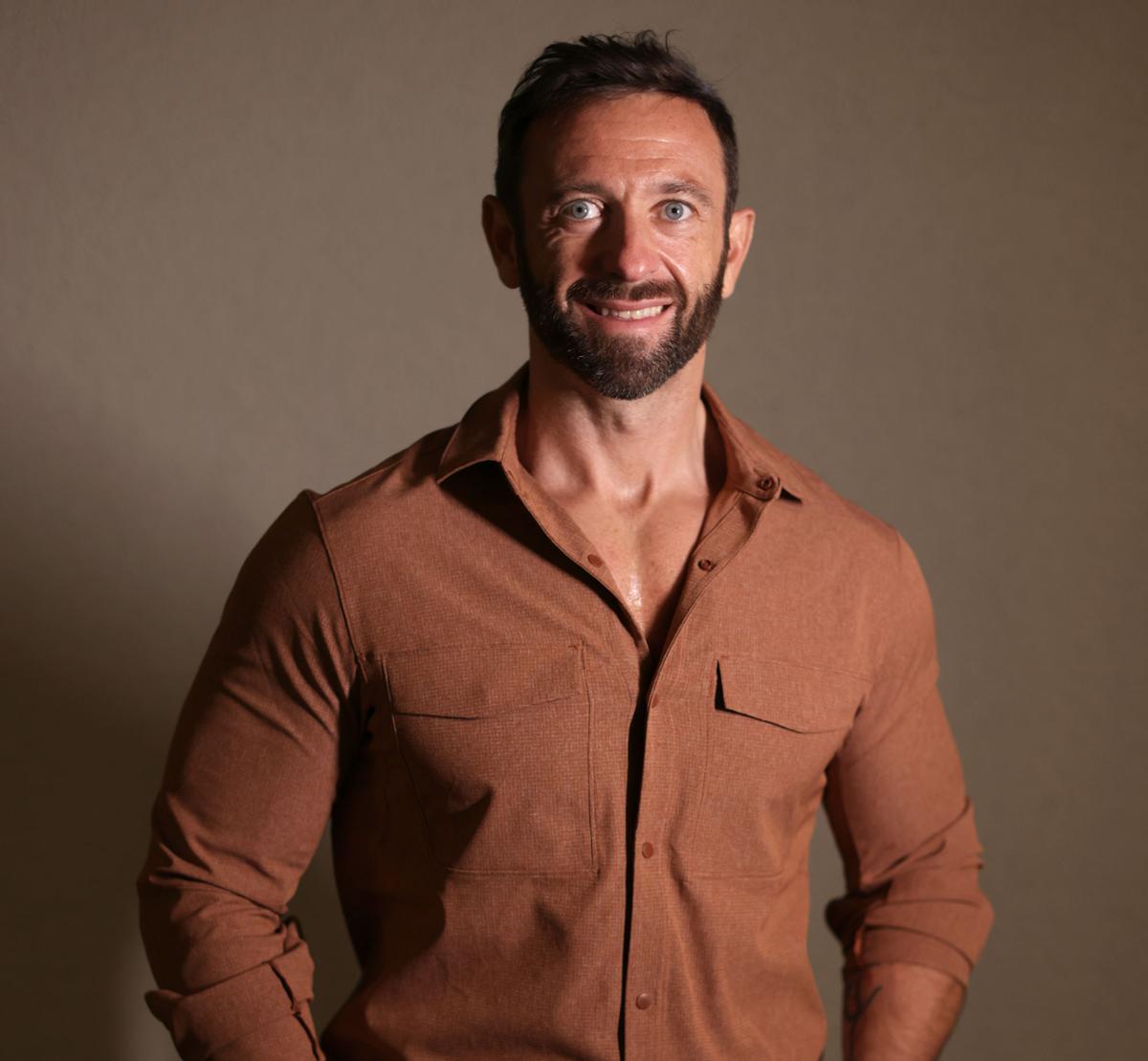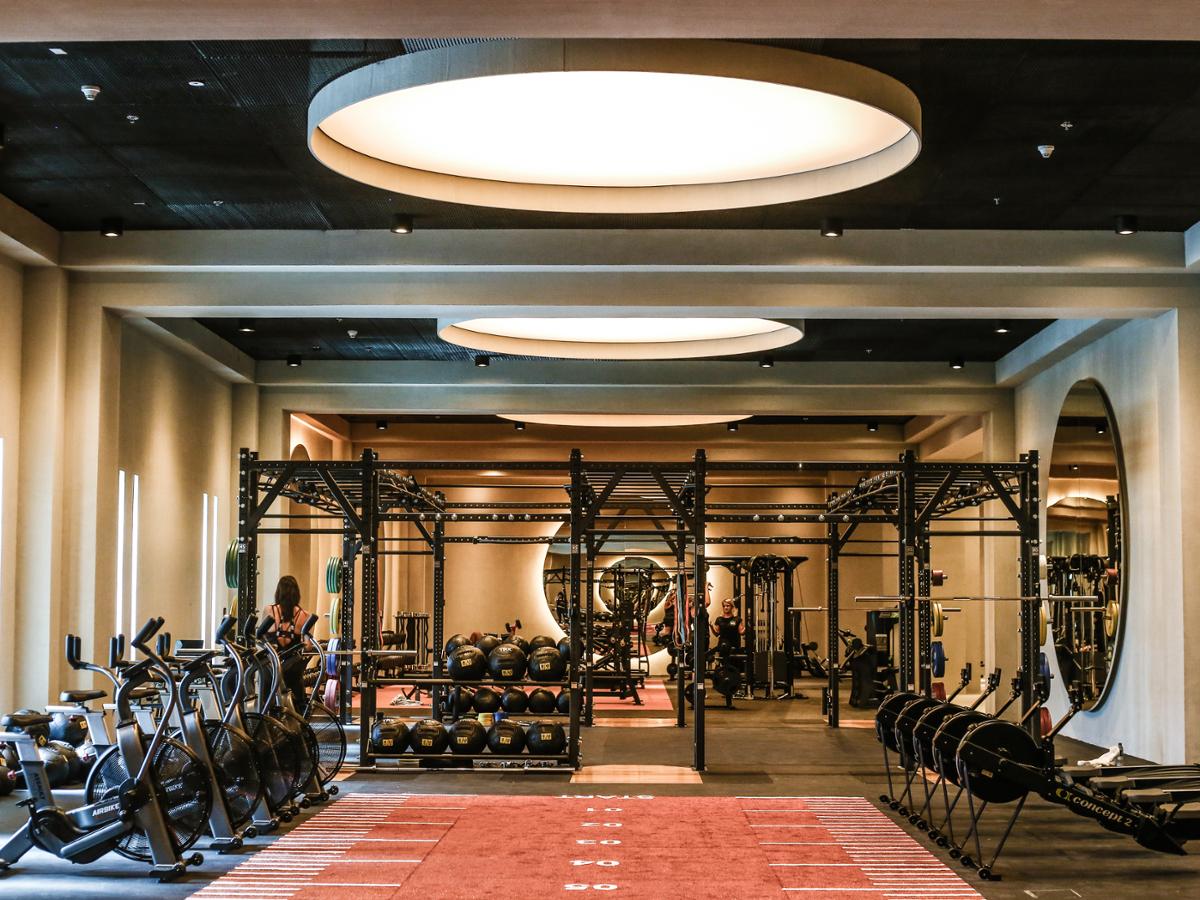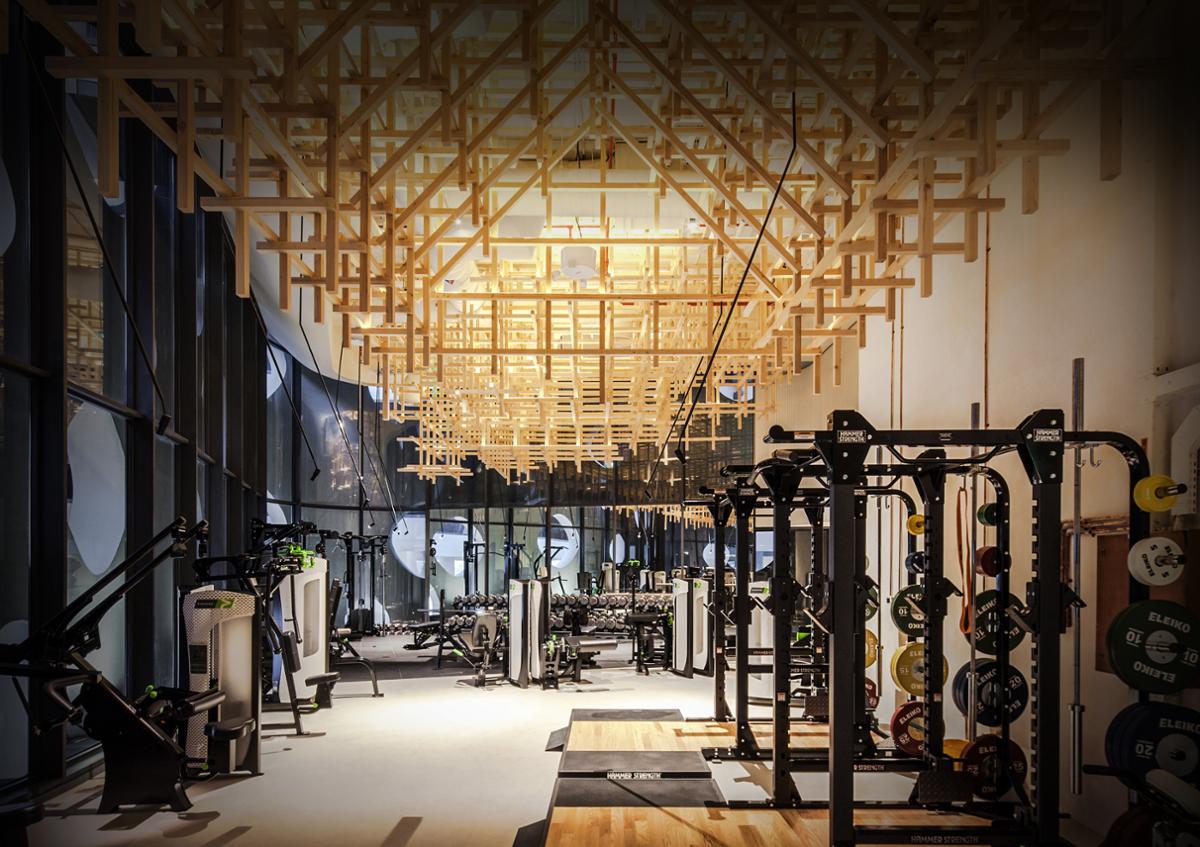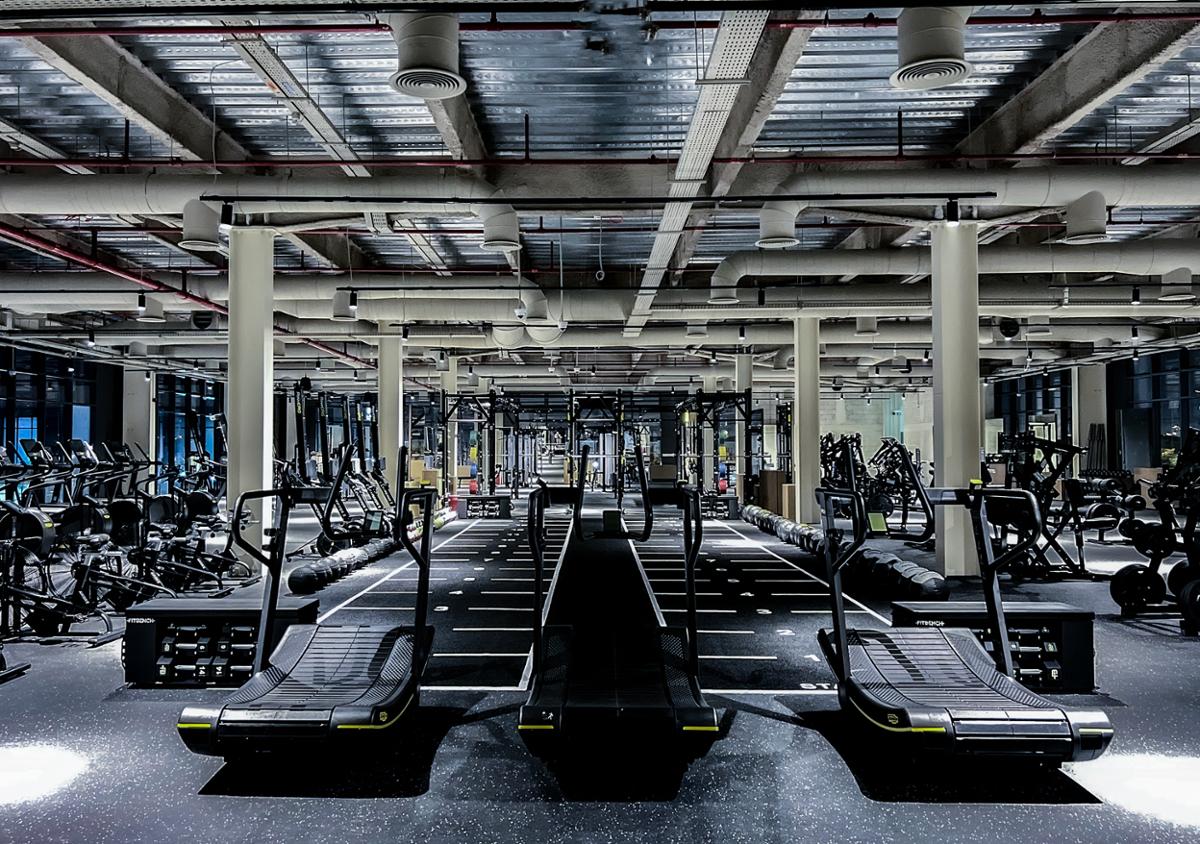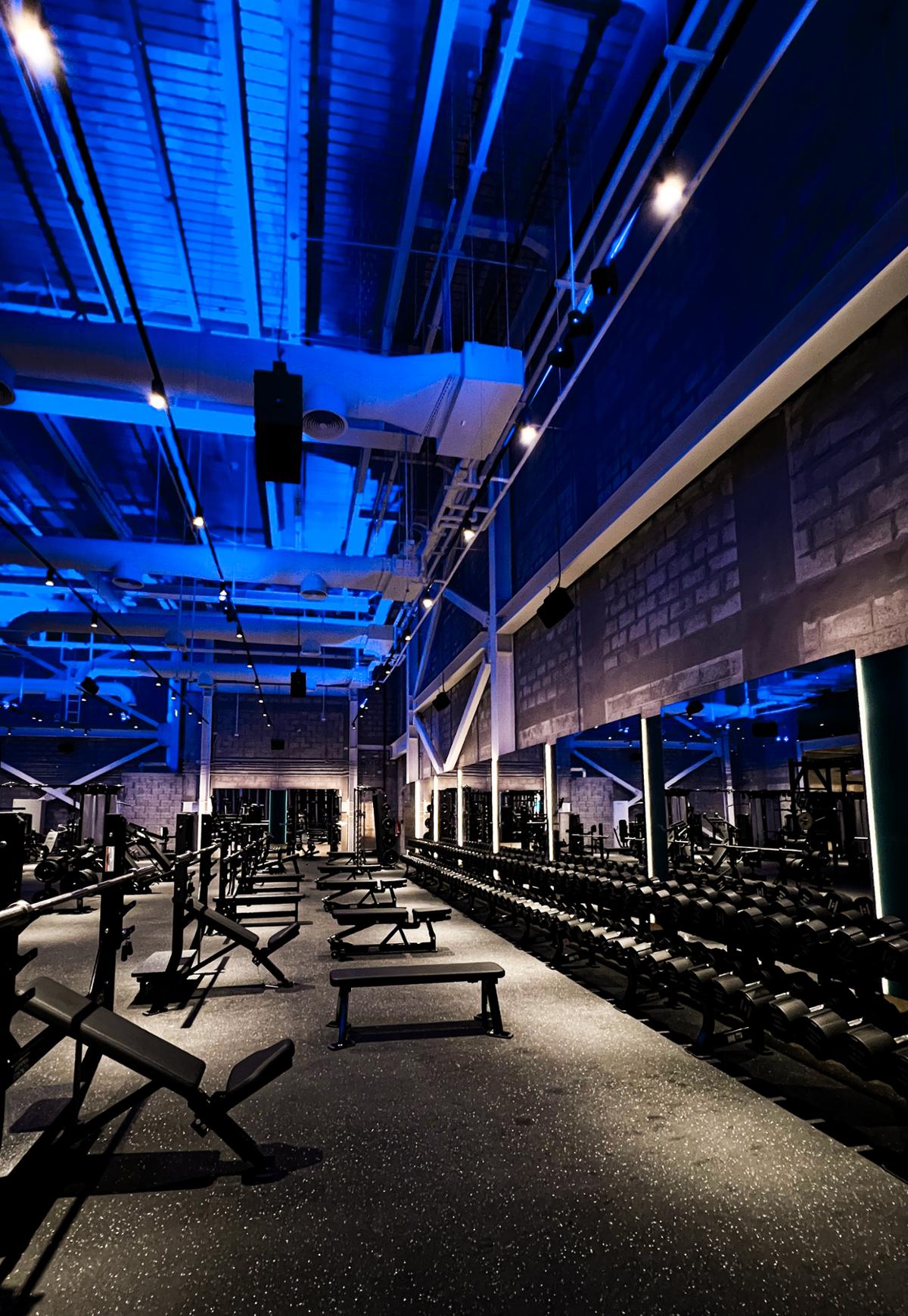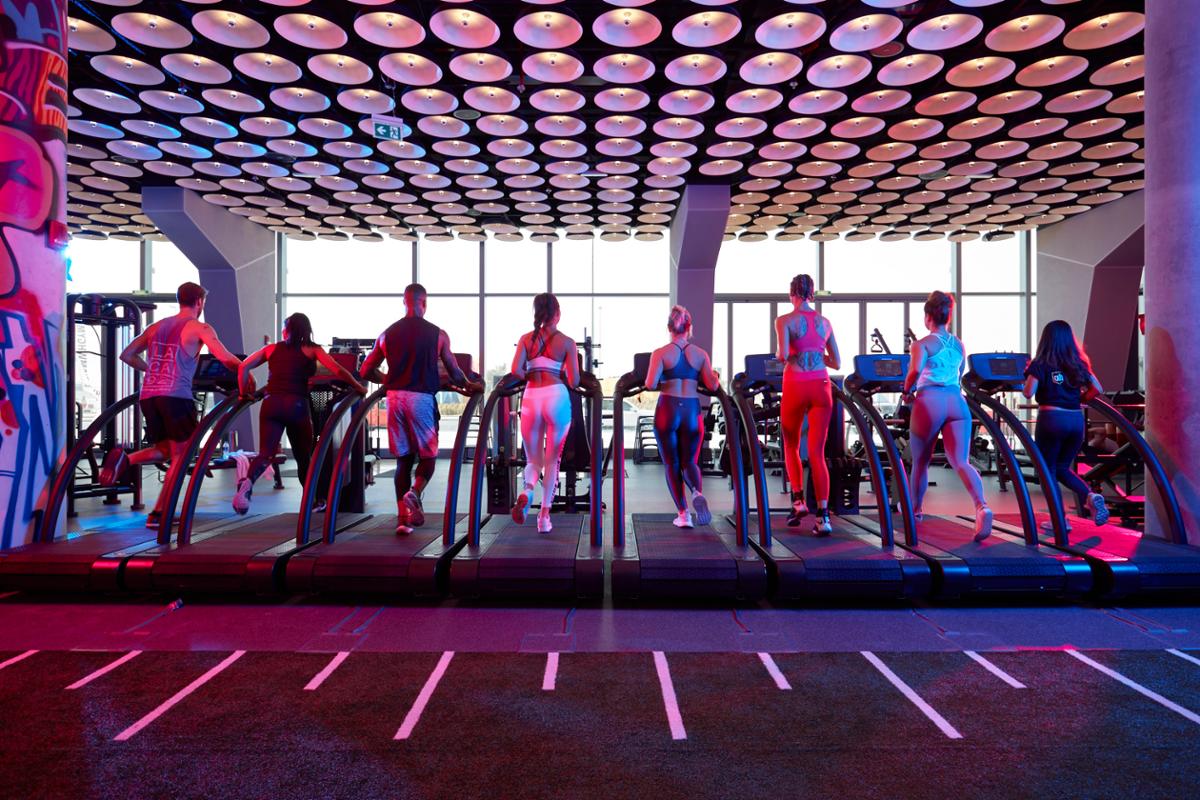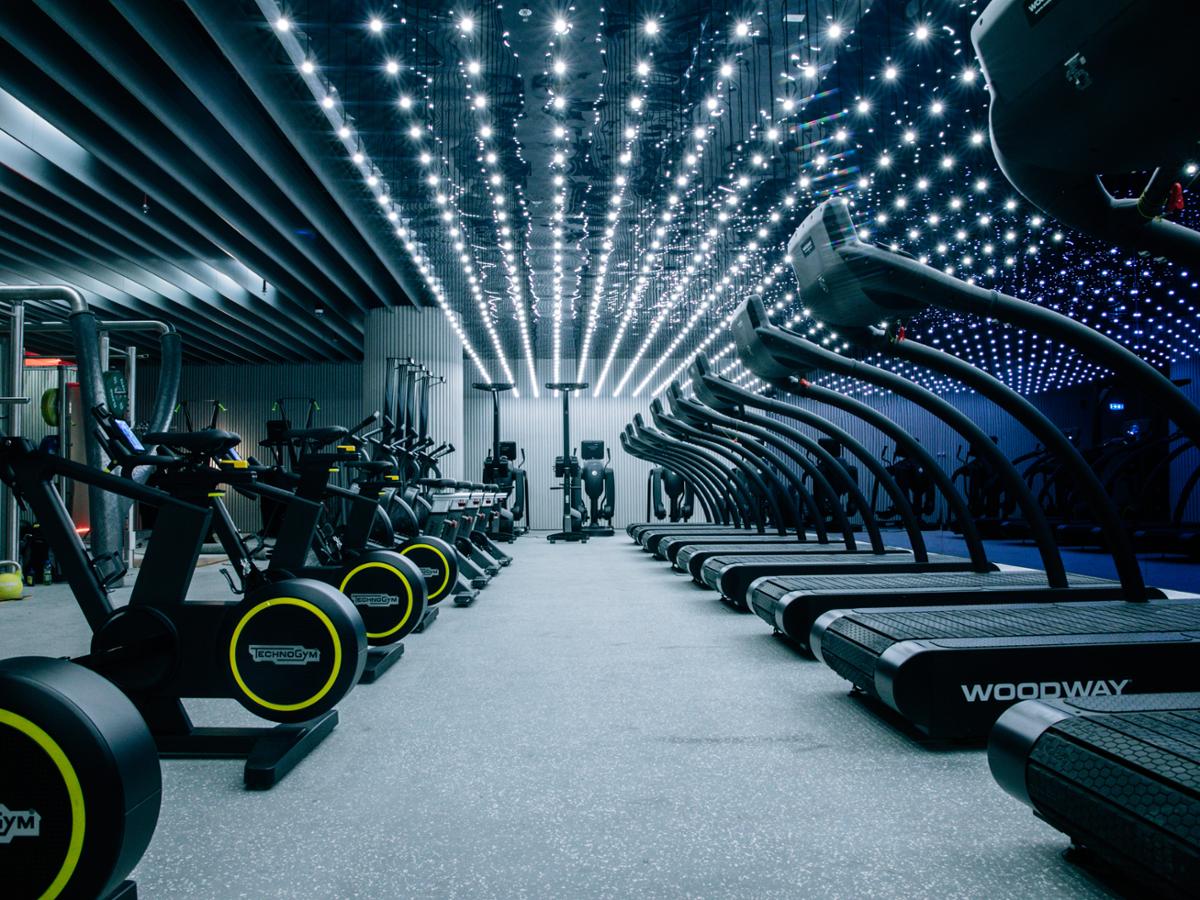What's your background?
As an overweight teen, I got myself into the gym at the age of 15 and never looked back. The difference it made to me physically and mentally changed my life and has propelled me in the direction of the industry for what I know will be the rest of my days.
I got into the industry 25 years ago after I graduated from Lancaster University, gaining experience from reception desk up to management, as I worked from the bottom up to become managing director.
What’s the ownership structure of the company?
The Warehouse Gym is corporate-owned. The business was founded by me, Fahad Al Rafi and Edris Al Rafi.
Was it risky to launch The Warehouse Gym?
Dubai craves new ideas and constantly challenges you to think better. The market was under-served and we could see the potential. The risk was actually to do nothing.
How is the market developing?
It’s grown exponentially and become broader in terms of the available offerings, while the entrepreneurial spirit that’s alive in Dubai has allowed for the development of a variety of gyms, boutiques, concepts and designs to suit all tastes. The fitness market has become populated with independent players, rather than chains – in contrast with Europe, the US and the UK.
What’s driving market growth?
An increasing awareness of the necessity of leading a healthy lifestyle, coupled with rising disposable incomes and an expansion in the number of health clubs in the region are some of the factors.
Dubai is a prominent city in the Middle East; however, Abu Dhabi and Saudi Arabia are also moving fast. Exercise crosses all boundaries, languages and cultures.
How does the market break down?
There are many segments in the market, driven by growing consumer demand, however, the belief that market segments need dedicated facilities is a dated one to me and not scalable or sustainable. That said, a large facility, such as those developed by Warehouse Gym – that meets the needs of many different user groups – needs to be done correctly. It's not as simple as some might think.
How do you feel about global operators coming into the Middle East market?
I welcome international players, but I don't think they will change the market or succeed based only on the fact that they’re international.
The health club and gym business is a local business and regardless of whether it’s on a small or large scale, the fundamentals remain the same.
Commercial battles are won in the detail and that's where local businesses have the edge.
Tell us about your business
Warehouse Gym – with soon to be 16 locations in the UAE – is the Emirates’ largest operator of premium gyms and has established itself as an operator of destinations known for their vibrant communities.
Our first opened in 2013 in a converted warehouse in Dubai, so the company got its name from this identity and history. We quickly became recognised for our street art, design, music and freedom of exercise.
In terms of size, they vary from boutiques at 12,000sq ft. to larger facilities at 40,000+sq ft.
When it comes to growth, we’re aiming to add three to four locations a year.
What are the most popular forms of training?
Strength training is the most popular by far, however, it requires a level of complexity in order to be successful so that people get the results they’re looking for.
What facilities do your clubs typically have?
All the gyms are based around strength elements, such as platforms, open areas with conditioning equipment, strength machines and cardio sections.
In addition, we have two to three immersive studios, personal training areas, recovery rooms, restaurants and juice bars. Our core belief is that exercise should have no boundaries or limitations.
Warehouse Gyms’ uniqueness is that each location is individually curated and no two gyms look alike. Our members don't get a gym membership at multiple locations, they get one membership at multiple gyms.
Each has different equipment to ensure members can mix things up and not get bored, as changes in environment and equipment are very stimulating. Depending on usage and the type of equipment involved, we refurbish and refit every three, five or eight years.
How are you developing the concept?
It's been a matter of constant evolution. I have a personal mantra when setting up a gym of starting with a blank canvas. You have to be able to adapt at any moment, as the fitness industry is changing so fast.
I spend time on the gym floor to see how and what people are doing, while keeping a close eye on the industry. You need to be ahead of the curve, but not too far ahead, or people might not be ready. It's important to know the difference between fads and trends, which some fail to appreciate.
We look at the demographics of clients when we design our gyms and tweak them based on feedback.
What are your membership rates?
Options range from a basic package at 99AED (£20, US$27) to our Premium Plus package which is priced at 699AED (£150, US$190), and provides access to all our locations, as well as recovery treatments, priority booking and monthly guest passes for friends and family.
Have membership numbers been growing?
Year on year membership numbers have grown even through the worst of the pandemic, trebling since 2018.
Tell us about your wellness services
We provide recovery services to promote overall wellness and improve workout performance, including cryotherapy and infrared saunas. We also have massage therapists who offer deep tissue work to address muscle soreness and injury and aid recovery.
Will you diversify your business model?
We began with a business plan that was flexible and we’ll continue to operate this way, however, there will be some standardisation, which will be necessary to set us up ready to launch a franchising business.
Can you share more about your franchise plans?
Warehouse Gym has a successful business model with a proven track record that’s been tested and refined and we’ve been asked if we would franchise the brand in areas such as South Africa, the Middle East and the UK.
The franchisees will have access to our business model, IP, and branding, as well as back-end support, which will be beneficial for those who are new to the industry or not experienced in running a business. This will also allows them to focus on running their gym. We expect to open our first franchise location in 2024.
Tell us about your app
We launched our Warehouse Gym App recently, it’s a tool that features streamlined check-in with an in-app barcode, as well as access to membership details, top-up balances, tracking of loyalty points, easy class bookings and information on personal trainers and package purchases.
Members can also see group class details and personal trainer star ratings on the app, along with confirmation of PT session delivery, offers and promotions. They can also use a ‘refer a friend’ function and connect with us via a ‘contact us’ section.
Backing up the app, we communicate regularly with members and they can sign up for notifications and customised push notifications.
Do you have an omnichannel offering?
No, We don’t encourage members to work out at home. Warehouse Gym is a physical experience with a strong community which encourages a real connection between people.
The gym also remains one of the few places where people can disconnect from the distractions of the outside world and focus on the task at hand. Physical presence, real human interaction and a device-free environment are the hallmarks of a gym experience and these features can make it one of the few havens unaffected by the trappings of technology.
And your loyalty programme?
We have a loyalty programme called Lift Loyalty through which members earn points every time they work out, take a class, get a post-work out shake or purchase membership or personal training.
These points can be redeemed for cash which can be applied against their next membership, personal training packages and a range of healthy food and shakes at the clubs.
What are your ambitions?
Making The Warehouse Gym the most successful brand of health clubs in the world and continuing to develop the brand to become more than a gym. We want it to be a place that ultimately makes people's lives better.
What's your business philosophy?
I’m a firm believer in balancing Yin and Yang. You must always have one foot planted firmly in order and the other foot firmly planted in chaos.
What's the end game?
I’d like to continue on this journey with Warehouse Gym until it's time to pass on the mantle to someone else.
I really enjoy building these gyms and I’d like to pass on my experience and help others build their dreams next, through our franchise business.








